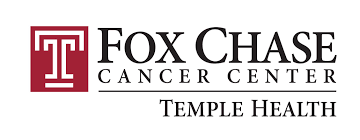Four-Day Workweek for Nurse Managers Improves Work-Life Balance, Fox Chase Cancer Center Study Finds

PHILADELPHIA (February 17, 2025) — Many large corporations have used a four-day workweek to attract and retain talent, but does this model work for nurse managers? A new paper by nurse leaders at Fox Chase Cancer Center makes the case that it does.
The authors surveyed participants before and after the center implemented an optional four-day workweek for nurse managers and found the program reduced stress, increased productivity, and improved employee satisfaction.
“It just promotes wellness in a very busy environment,” said first author Jennie Gilliland, MSN, RN, OCN, Clinical Director of Infusion Services at Fox Chase.
The center implemented the program in 2021, informing nurse managers that they had the option to work a four-day week as long as leadership productivity and visibility was maintained. Nurse managers were expected to be fully accountable for the key performance indicators for their business unit and to switch back to the traditional workweek schedule as needed if metrics were trending negatively. They would also need to be available for emergencies when at home.
Gilliland said nurse leaders were both excited and anxious about the change. While some studies have found positive results for such policies in corporate settings, she found no information on whether they had been successful in clinical environments.
“We thought, ‘This is a great opportunity. Let’s use it and survey ourselves to see how people feel about it over a certain timespan,’” Gilliland said. She conducted the study with corresponding author Susan Rux, PhD, DNP, RN, FACHE, Associate Vice President, Professional Nursing Practice & Research, and Anna Liza Rodriguez, MSN, MHA, RN, OCN, NEA-BC, Chief Nursing Officer and Vice President of Nursing and Patient Care Services at Fox Chase.
Fifteen months after the program was implemented, surveys found a 6% increase in job satisfaction, a 45% increase in satisfaction with work-life balance, a 52% improvement in feeling guilt for taking time off, and a 36% increase in confidence in the ability of units to run effectively in their absence. Around 65% of nurse managers reported working 10 or more hours per day, similar to levels before the program started.
Gilliland said a key lesson gleaned from the program was that nurse managers needed to be more productive during the four-day workweek in order to take advantage of time off. They also had to be flexible, as they often found themselves responding to email on their at-home days and were sometimes called into work.
“Yes, it’s a remote day, but one still has to be available,” Gilliland said. “If you prefer to not be contacted about work-related matters, the expectation is to take a vacation or personal day.”
Even with those parameters, the program was popular and helped recruitment. The promise of flexibility and greater work-life balance was especially important in recruiting qualified nurses to leadership roles because those who are used to frontline nursing schedules appreciate flexibility.
“I hired two nurse managers during this time, and they both said one of the top reasons they considered leadership was the availability of the four-day workweek,” Gilliland said.
The research team will conduct another survey once more time has elapsed to measure the ongoing effects of the program.
The study, “A 4-Day Workweek for Nurse Leaders: Unveiling the Lessons Learned,” was published in Nursing Economic$.
# # #
Fox Chase Cancer Center (Fox Chase), which includes the Institute for Cancer Research and the American Oncologic Hospital and is a part of Temple Health, is one of the leading comprehensive cancer centers in the United States. Founded in 1904 in Philadelphia as one of the nation’s first cancer hospitals, Fox Chase was also among the first institutions to be designated a National Cancer Institute Comprehensive Cancer Center in 1974. Fox Chase is also one of just 10 members of the Alliance of Dedicated Cancer Centers. Fox Chase researchers have won the highest awards in their fields, including two Nobel Prizes. Fox Chase physicians are also routinely recognized in national rankings, and the Center’s nursing program has received the Magnet recognition for excellence six consecutive times. Today, Fox Chase conducts a broad array of nationally competitive basic, translational, and clinical research, with special programs in cancer prevention, detection, survivorship, and community outreach. It is the policy of Fox Chase Cancer Center that there shall be no exclusion from, or participation in, and no one denied the benefits of, the delivery of quality medical care on the basis of race, ethnicity, religion, sexual orientation, gender, gender identity/expression, disability, age, ancestry, color, national origin, physical ability, level of education, or source of payment.
For more information, call 888-369-2427.



